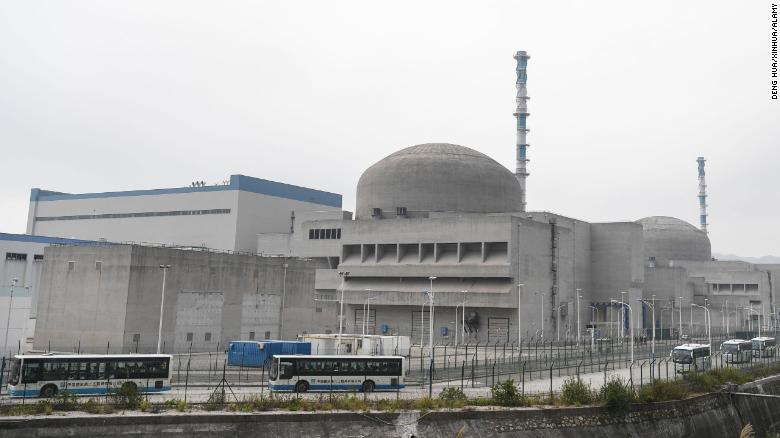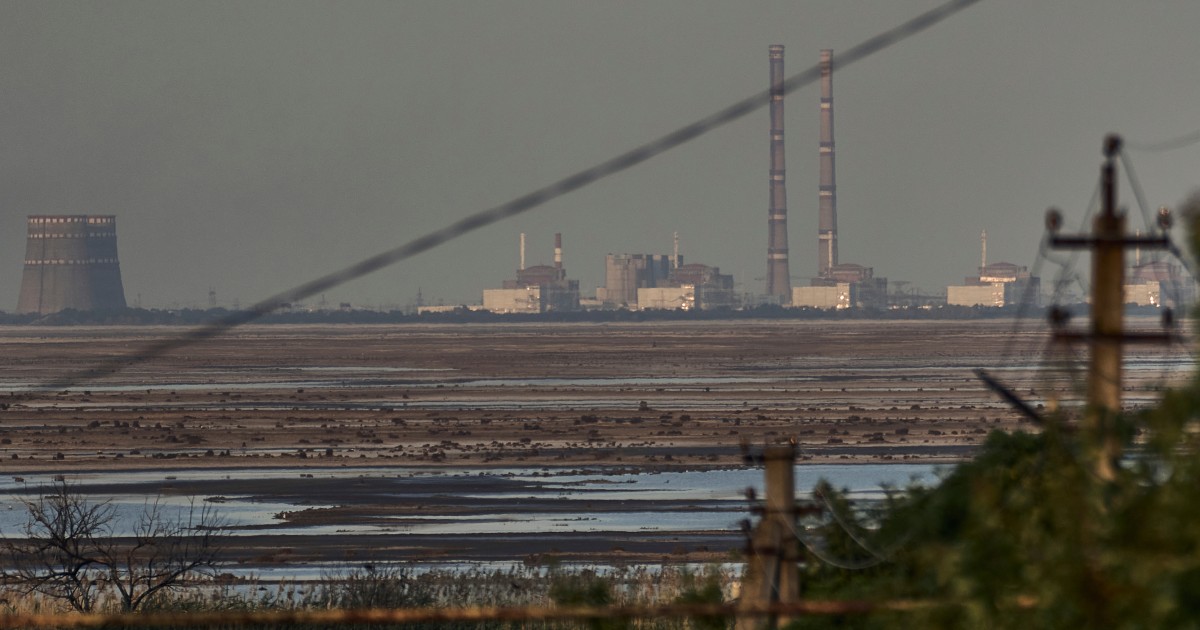Nuclear reactor monitored for possible radiological threat 3:00
Hong Kong (CNN) -
China said on Tuesday that radiation levels around the Taishan nuclear power plant are normal, following CNN's exclusive report that the US government was evaluating a reported leak at the facility.
'There are no anomalies in the radiation environment around the nuclear power plant.
Your safety is guaranteed, "Foreign Ministry spokesman Zhao Lijian told a news conference in Beijing.
On Monday, CNN reported that the French company that helps operate the nuclear plant in southern Guangdong province had warned Washington of an "imminent radiological threat."
The warning included an accusation that the Chinese safety authority was raising acceptable limits for radiation detection outside the plant to avoid having to shut it down, according to a letter from French firm Framatome to the US Department of Energy, obtained by CNN.
Nuclear energy in the world: how many reactors does each country have?
In response to Tuesday's report, Zhao said that the Taishan plant fully met all technical requirements.
advertising
"China attaches great importance to nuclear safety and has established a nuclear safety supervision system that is in line with international standards and national conditions," he said.
“China's nuclear power plants have so far maintained a good operating record.
There have been no incidents affecting the environment and public health.
However, Zhao declined to answer follow-up questions about Framatome's language in his warning to US officials, specifically, his use of the term "imminent radiological threat" and the suggestion that the Chinese authorities had raised acceptable radiation limits for the plant and its surrounding area.
On Wednesday, China's National Nuclear Security Administration (NNSA) denied raising acceptable limits for radiation outside the plant to prevent its closure.
Instead, the regulator said it "reviewed and approved the relevant limits for specific radioactivity of inert gases in the reactor coolant at the Taishan nuclear power plant."
"These limits are used for operational management and have nothing to do with radiation levels outside the nuclear power plant," the administration said in a statement on its official social media account.
Echoing previous statements by the French co-owner of the plant, Electricite de France (EDF), which is the majority owner of Framatome, the NNSA acknowledged an increased level of radioactivity in the primary circuit in one of the two reactors due to the rods of damaged fuel.
"The increase in the level of radioactivity in the primary circuit is completely different from a radiological leak accident," since the "physical barriers are safe," he said, adding that the level "is still within the range of stable allowable operation." and the "operational safety of the nuclear power plant is guaranteed".
The agency said only five of the more than 60,000 fuel rods in the reactor have been affected, reiterating that there is no risk of "radiation leaks into the environment."
Previously, the plant owners maintained that the environmental readings of both the facility and the surrounding areas were "normal."
In a statement on Sunday, they said that the two nuclear reactors in Taishan are operational, adding that Unit 2 had recently completed a "review" and "successfully connected to the grid on June 10, 2021."
It did not define why or how the plant was reconditioned.
Despite the alarming notification from Framatome, the Biden administration believes the facility is not yet at a "crisis level," a source told CNN.
EDF has a 30% stake in the power plant owner and operator, TNPJVC, a joint venture with the state-owned China General Nuclear Power Group.
China General Nuclear Power Group and three of its affiliates were added to a list of US entities in August 2019, reducing the Chinese company's access to US technology.
Framatome had contacted the US to obtain a waiver that would allow them to share US technical assistance to resolve the problem at the Chinese plant.
Concern over possible leak at Chinese nuclear plant 3:32
US officials have been monitoring the situation and believe that it currently does not pose a serious threat to the safety of the plant workers or the Chinese public.
But the concern was significant enough that the National Security Council held several meetings last week.
The Biden administration has discussed the situation with the French government and its own experts at the Department of Energy, the sources said.
The United States has also been in contact with the Chinese government, US officials said, though the extent of that contact is unclear.
In a statement to CNN on Friday, Framatome acknowledged that it "is supporting the resolution of a performance problem with the Taishan nuclear power plant in Guangdong province, China."
“According to available data, the plant is operating within safety parameters.
Our team is working with relevant experts to assess the situation and propose solutions to address any potential problems, ”the statement added.
On Monday, the French utility EDF said in a statement that it had been informed of an increased concentration of "noble gases in the primary circuit" of reactor number 1 at the Taishan plant.
EDF said that "the presence of certain noble gases in the primary circuit is a known phenomenon, studied and foreseen in the operating procedures of the reactor", but did not elaborate on the gas levels.
Later on Monday, an EDF spokesman said the rise in radiation levels was caused by "degradation of the fuel rod casing."
The spokesperson said that the levels of radioactivity observed at the plant were below the threshold stipulated by the Chinese authorities, adding that the affected houses are the first of three containment barriers between the rods and the atmosphere.
The spokesperson noted that the risk of a possible rod housing leak was first discussed following a planned refueling interruption in October 2020 after initial measurements led to a suspicion of a "leakage" in the housings. .
However, the spokesperson emphasized that without a full analysis, it is too early to confirm whether a complete reactor shutdown is necessary, adding that EDF currently has no information on the origin of the rod casing degradation.
CNN's Kylie Atwood, Kristen Holmes, Steven Jiang, Yong Xiong, and Shanshan Wang contributed to this report.
Nuclear energy












